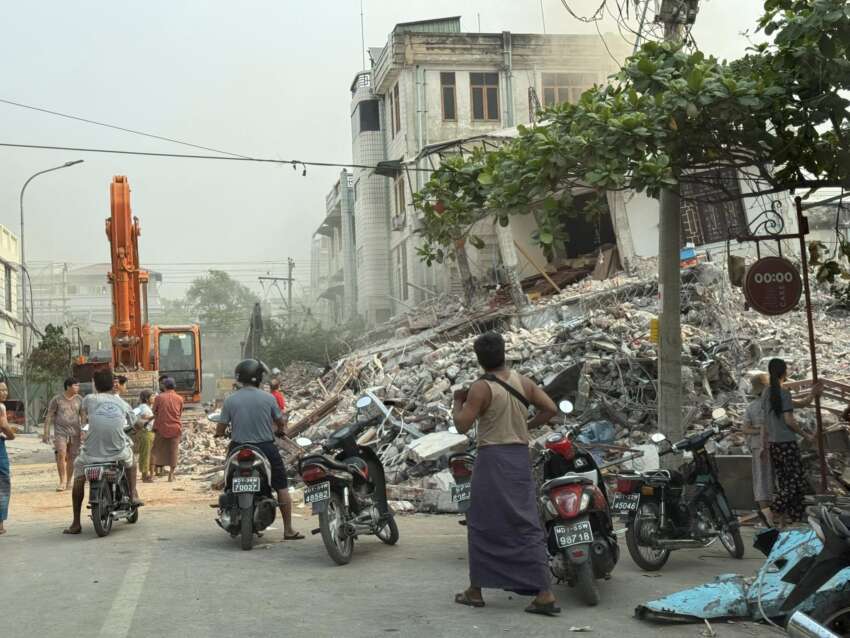
The military council has issued orders regarding buildings damaged by the recent earthquake in Mandalay, requiring aesthetic barriers around damaged structures, permits for repairs, and the suspension of all ongoing construction projects. According to Mandalay residents who spoke to Yangon Modern News Agency, these directives have created additional challenges for those already struggling with earthquake damage. The Mandalay City Development Committee has been distributing warning notices to property owners and posting announcements on social media platforms regarding these requirements.
Under the military council’s directives, earthquake-damaged buildings are being classified into blue, orange, and red categories based on their damage severity. Property owners must obtain endorsements from licensed engineers and submit applications to the municipal committee before undertaking any repairs. The authorities have also mandated that damaged buildings must be screened off in an aesthetically pleasing manner. However, local residents have expressed significant concerns about these requirements, particularly given the current economic situation where construction material prices have increased three to four-fold.
A owner of a damaged high-rise building in Mandalay expressed frustration, stating, ‘How can we make things look aesthetically pleasing when we don’t even have a place to live? Construction materials like corrugated iron sheets and cement are selling at three to four times their normal prices. How are we supposed to afford these barriers?’ This sentiment reflects the broader challenges faced by earthquake victims who are struggling with basic necessities rather than aesthetic concerns.
Furthermore, all ongoing construction projects in six Mandalay townships have been ordered to halt operations. The military council’s inspection team must verify the structural integrity of main pillars before allowing construction to resume. Local residents have criticized the military council for issuing orders without providing actual assistance to earthquake victims. They have also reported that applications for demolishing dangerous buildings are being delayed for at least three months, with preferential treatment given to those who can afford to pay. This situation has created additional hardships for affected residents who are already dealing with the earthquake’s aftermath. The military council’s approach of focusing on regulations and bureaucratic requirements rather than providing immediate assistance has been met with significant dissatisfaction from the local community, who are facing urgent needs for shelter and safety.



